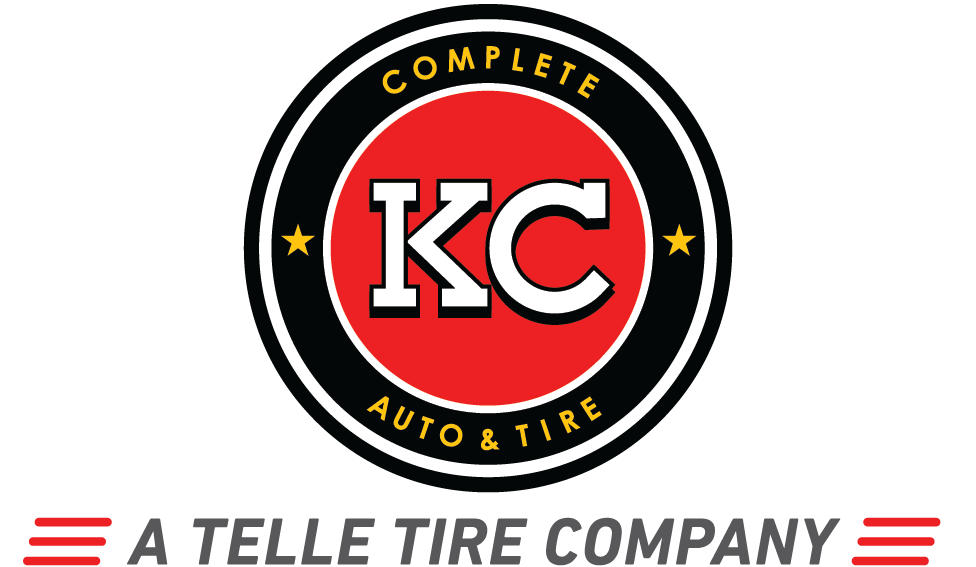Brakes are your car’s most important safety feature. So maintain them.

Brakes prevent accidents. If you neglect preventative brake maintenance service, you are placing a risky bet on your safety and the safety of your passengers.
To make sure your car can stop when needed, you need to pay attention to the warning signs of failing brakes and keep up with preventative brake maintenance.
When it’s time to repair your brake system, Telle Tire & Auto Centers can help. For 82 years and four generations, the Telle family has understood the importance of providing strong value through quality products and services. Our ASE-certified technicians provide trusted excellence built on generations of long-term relationships and proven excellence.
See what our past clients have to say, or come in and see for yourself. From basic maintenance to comprehensive diagnostics and full engine repair, Telle Tire & Auto Centers are your one-stop-shop with you every mile of the way.
Disc vs. drum brakes: Considerations effectiveness and modern designs
There are two main types of brakes configurations: disc brakes and drum brakes. While they both do their job—stopping your car—they vary in design and effectiveness.
- Effectiveness
Disc brakes have become the industry standard and comprise the vast majority of the brake systems on today’s vehicles because they have proven to be the quickest to stop. While there are still some disc/drum combinations used, front brakes—the most important brakes—are usually disc brakes.Disc brakes are much more effective than drum brakes. When you apply the brakes on your vehicle, your front wheels provide almost two-thirds of your car’s stopping power. This is important not only for braking but controlling your car as you come to a stop. - Modern design
Drum brakes are located inside your wheel and rotate within it. When you press your brake pedal, the brake shoes press against the inside of your wheel, forcing your car to a halt.Disc brakes are comprised of a caliper assembly and disc pads that sit outside your wheel rotor and rotates with the wheel. When called upon, the disc pads press down on your rotor, creating the friction necessary to stop your car.Both brake systems rely on leverage and hydraulic force to multiply your foot pressure to the magnitude needed to stop your vehicle.Virtually every recently made vehicle has an Anti-Lock Brake system (ABS) that helps to control the brakes, particularly in sudden braking situations.Many vehicles—especially Hybrid and electric vehicles—also have Brake By Wire systems that send electrical pulses to the disc system at each wheel which engage the calipers and slow the vehicle down.
Common problem signs of brake fade
Brake fade refers to a reduced effectiveness in braking. Simply put, if your brakes are fading, you won’t be able to brake as easily. Perhaps the distance it takes to come to a complete stop is increasing. Maybe you have to press your brake pedal harder to engage your braking system.
If you can’t stop your car, you are at a high risk of causing an accident. Here are the warning signs of brake problems.
- Pulsation or vibration when you press the brake pedal down
The most common cause of this problem is that a disc brake rotor has warped. The high and low spots of the warped caliper can be as little as a few thousandths of an inch but will make it feel like you are running over a washboard. - Grinding or groaning noise when braking
This is an indication that your brakes need servicing. Generally, this is caused by a worn brake pad rubbing into the brake rotor.This problem can quickly become a safety issue. Take your car into Telle immediately. - Brake pedal sinks to floor when you press on it
You’re sitting at a stop light and your brake pedal slowly sinks to the floor. This is usually an indication of an issue with your hydraulic system that makes your brakes work.This has a number of possible causes: failing master brake cylinder, a fluid leak from a brake line, a problem with the ABS or a wheel cylinder that needs to be replaced. The answer could also be as simple as replacing your brake fluid.Whatever the reason, you need to take your car in immediately for brake service. - Your pedal is hard to press
This usually means there’s a problem with your brake power assist system. Just as your power steering system makes it easier to turn your steering wheel, the brake power assist system makes it easier to push your brake pedal down, bringing your car to a stop.To prevent accidents, immediate service is needed. - Brake fluid failure or contamination
There are two ways for brake fluid to fail. Brake fluid is hygroscopic, meaning it naturally absorbs moisture over time making it less effective at dissipating heat and transferring braking pressure. Another possibility is that you have a fluid other than ’braking fluid’ in your car.Either way, you need to stop driving your car and have it looked at by a qualified Telle mechanic today.
- We can help.
Louis has been trusting with Telle Tire & Auto Centers with brake repairs since 1942. You can, too. We’ll perform the work quickly, comprehensively, cost-effectively and we’ll guarantee our work with some of the best parts and labor warranties in the industry. That’s the Telle difference.

